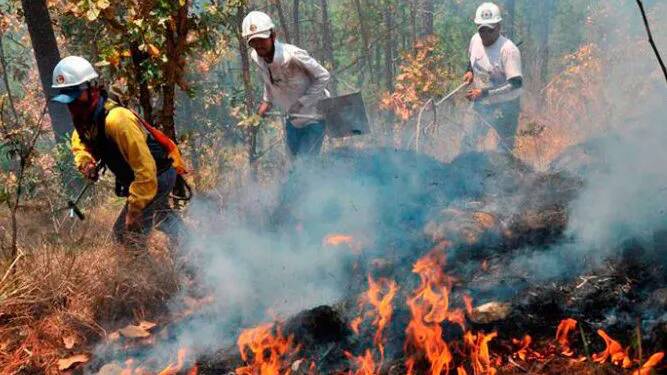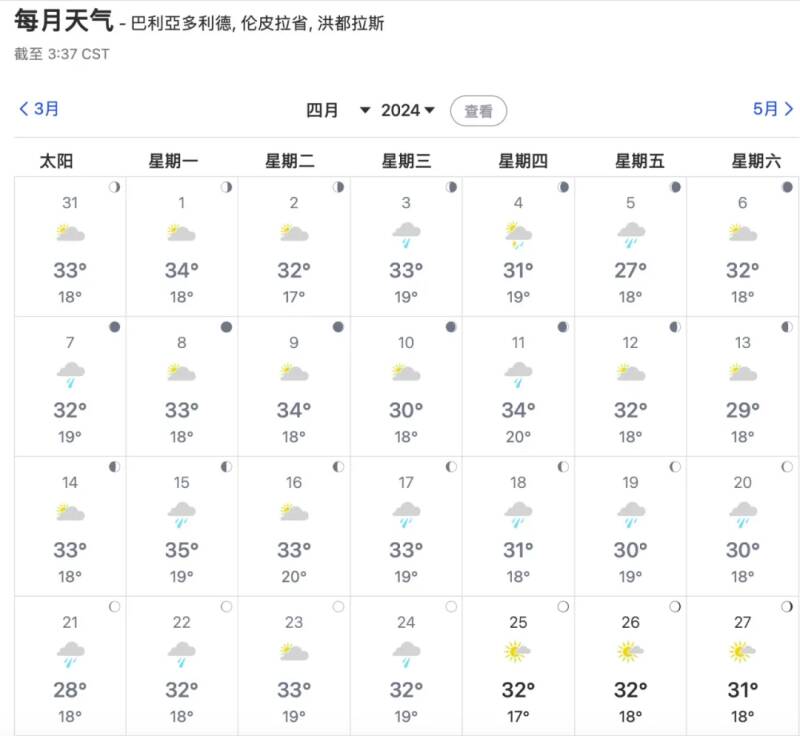High temperatures continue in America! Honduras coffee industry affected
Recently, due to bad weather in Honduras, the Honduran Coffee Research Institute (IHCAFE) is worried about future coffee production. There have been 1903 forest fires across Honduras so far this year, engulfing more than 150000 hectares of forest and seriously affecting agriculture in the country, according to figures released by the Honduran Forest Conservation Institute (ICF).

According to the data, Olancho has the worst affected forest area, ranking first in the country, with 37100 hectares, followed by Francisco Moraz á n (32400 hectares), followed by Gracias Adios (Gracias a Dios), with 23500 hectares destroyed by the fire.
Moreover, since 2024, temperatures in many countries in Latin America have reached new highs, hot and dry weather has led to frequent fires, large areas of mountains and forests have been on fire, and many countries have declared a state of emergency. Honduras is no exception. It has experienced high temperatures this year, and it is reported that Honduras is experiencing its hottest and driest year since 1992, with the highest temperature reaching 38-40 ℃.

In addition, the provinces of Olancho and Francisco Moraz á n, which are hard hit by forest fires, are coffee producing areas in Honduras, but fortunately these coffee producing areas are not major producing areas and produce less, so forest fires have less direct impact on the coffee industry.
But there are some effects. According to the Honduran Coffee Institute (IHCAFE), drought and high temperatures caused by El Ni ñ o will affect the production of coffee beans next season, because according to Honduran weather monitoring data, the rainfall in Honduras will be nearly 40% less than in the same period last year, which is not conducive to the growth of coffee plants during flowering, causing a fatal blow.
In addition, although forest fire has no direct effect on the growth of coffee, it has many potential effects. After forest fire, the soil will be destroyed and eroded, resulting in the weakening of land fertility and the reduction of agricultural production. In addition, forest fires cause damage to the forest ecological environment, and it takes a long time to restore the ecological environment.
In addition, Honduras, a country that is extremely vulnerable to climate change, has been hit by El Ni ñ o this year, followed by La Ni ñ a. According to the Office of the Emergency response Committee of Honduras (Copeco), disasters similar to those caused by Hurricane Mitch in 1998 could be encountered this year, and this year's hurricane season will pose a serious threat to the country.
It is understood that Hurricane Mitch brought a serious disaster to Honduras, killing more than 5000 people, destroying countless bridges, houses, road construction and crops, and causing economic losses as high as 4 billion US dollars.
This year's Atlantic hurricane season will form 23 tropical storms, 11 of which will evolve into hurricanes, including five very dangerous hurricanes, which are higher than the average in previous hurricane seasons. In addition, the Copeco has drawn up an emergency plan and submitted it to the president, and the government will invest at least 900 million lumbras to deal with the hurricane disaster, but local residents also need to take precautions during the hurricane season.
Important Notice :
前街咖啡 FrontStreet Coffee has moved to new addredd:
FrontStreet Coffee Address: 315,Donghua East Road,GuangZhou
Tel:020 38364473
- Prev

What are the uses of these coffee-assisted toys? How to use Lily Drip and Paragon ice hockey?
In daily life, some appliances appear to allow us to have higher efficiency when performing certain things, or to complete something better and better! These devices are often collectively referred to as "assistive tools." In the field of coffee, there are also many such gizmos
- Next

What does Origami mean? How should I use an origami filter cup? Pair it with conical filter paper or cake filter paper?
In 2014, Mr. Yasuo Suzuki opened TRUCK COFFEE in Nagoya, Japan, and also released the original coffee appliance-the Origami series! The protagonist of this article is the "Origami Filter Cup" from this series. Until the new filter cup is like rain
Related
- What grade does Jamaica Blue Mountain No. 1 coffee belong to and how to drink it better? What is the highest grade of Blue Mountain coffee for coffee aristocrats?
- What are the flavor characteristics of the world-famous coffee Blue Mountain No. 1 Golden Mantelin? What are the characteristics of deep-roasted bitter coffee?
- Can I make coffee a second time in an Italian hand-brewed mocha pot? Why can't coffee be brewed several times like tea leaves?
- Hand-brewed coffee flows with a knife and a tornado. How to brew it? What is the proportion of grinding water and water temperature divided into?
- What is the difference between Indonesian Sumatra Mantinin coffee and gold Mantinin? How to distinguish between real and fake golden Mantelin coffee?
- What does bypass mean in coffee? Why can hand-brewed coffee and water make it better?
- Unexpected! Ruixing Telunsu lattes use a smoothie machine to foam milk?!
- % Arabia's first store in Henan opens into the village?! Netizen: Thought it was P's
- Does an authentic standard mocha coffee recipe use chocolate sauce or powder? Mocha Latte/Dirty Coffee/Salty Mocha Coffee Recipe Share!
- What is the difference between Vietnam egg coffee and Norway egg coffee? Hand-brewed single product coffee filter paper filter cloth filter flat solution!

